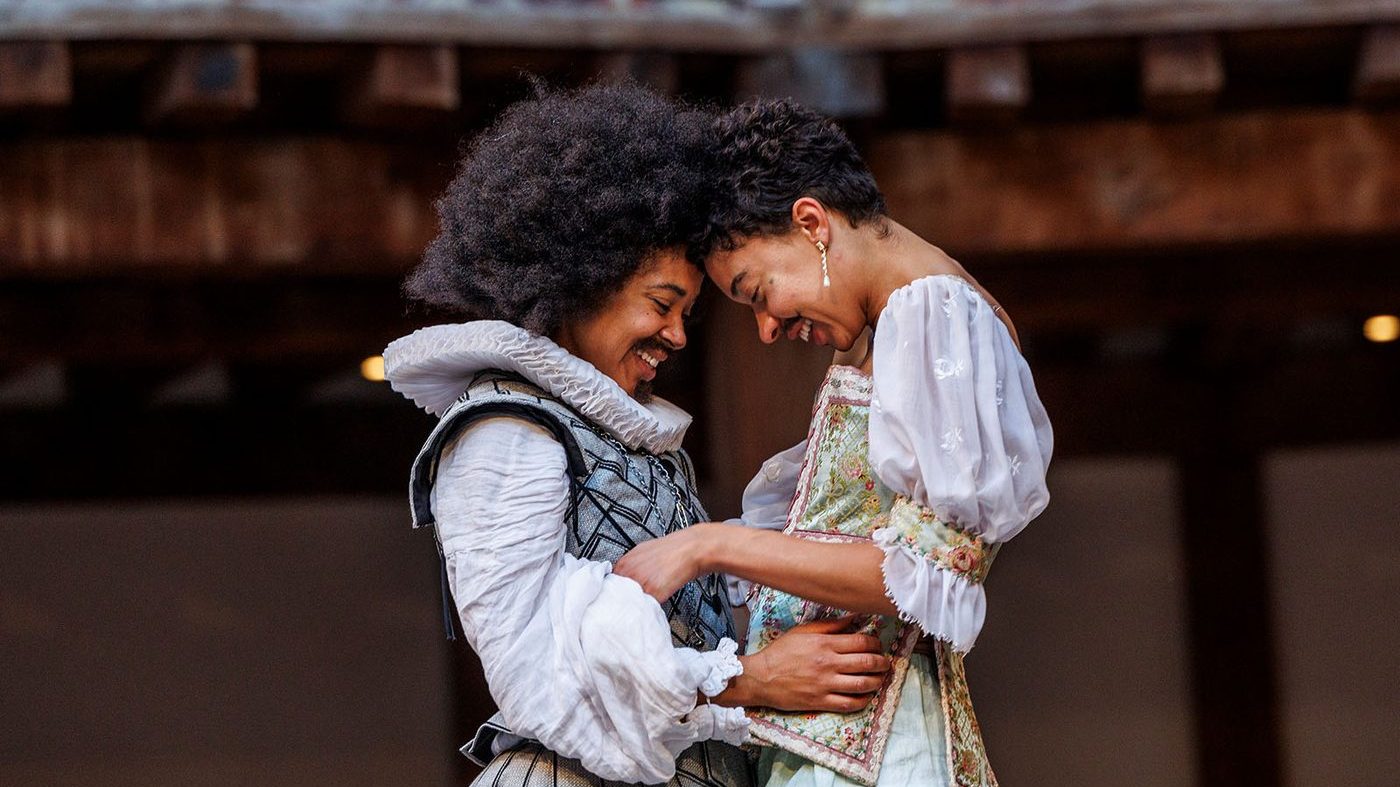From the choice of Michelle Terry, a non-disabled person, to play Richard III at the Globe to the racist backlash against the announcement that Francesca Amewudah-Rivers would play Juliet opposite Tom Holland’s Romeo in the West End, Shakespeare casting decisions are never far from the news. How is it possible that a 550-year-old playwright is still one of our most controversial theatre-makers?
Even in fringe theatre, Shakespeare is still a hot topic and a seedbed for hate. If you need evidence, check out the comment sections of our social media ads for our new show English Kings Killing Foreigners, which explores the relationship between Shakespeare and English cultural identity. It’s never been more clear to us that Shakespeare himself has been cast in a lead role in the wider story of who has the right to represent England today.
What it even means to be “English” seems particularly pressing at the moment; in a post-Brexit, post-Queen-Elizabeth-II world, and with a general election on the horizon, it is impossible to avoid the perhaps quintessentially British discussions about who Britain is and what it represents.
For some, being British is about compassion, multiculturalism, and tolerance, and they cast the UK as an inclusive arcadia. For others, the UK is about tradition, individualism, and sovereignty.
What we know is that Britain has never been monolithic in its identity, and this is clear in Shakespeares’ series of plays known as the Histories. These are 10 plays that follow the British monarchy across generations of in- and out-fighting – think The Crown, but with more soliloquies.
The Histories mostly centre on privileged nobility and their internal squabbles and doubts but, at their best, put the experiences of common people centre stage and give them opportunities to directly challenge the monarchy (before inevitably being put back in their place).
Ironically for those who claim Shakespeare as an icon of Englishness, the tumultuous Histories show that Englishness and British identity has been in flux for a long time. However, for the most part, they are as boundary-pushing as the last few seasons of The Crown – not necessarily radical.
Shakespeare’s most “English” of the Histories, and also perhaps his most pertinent play when it comes to our relationship with our continental neighbours – never far from our minds in the 21st century – is Henry V. I (Philip) happened to be staging a production of it at the Regent’s Park Theatre on the night of the Brexit referendum in June 2016.
I will never forget how, through tears, the cast went to war with France and cried “God for Harry, England and St George” – to a palpably tense crowd. Exactly three years later, in 2019, Nina and I met on another production of Henry V at the Globe. Amid the shifting political landscape, and feeling the repercussions and reverberations of an impending national election (in which Brexit would, of course, be a defining issue) had countless discussions in the rehearsal room about how important it was to be telling those stories with a multicultural company at that historical moment.
We hoped that somehow by mounting the play we would be taking back a vision of Britishness that had been co-opted by the Leave campaign. When we performed battles, screaming England’s name, we were fighting for the inclusive progressive England of our dreams.
Yet when we stepped out to do Henry V, a play that centres a moment of English victory over France, the audience still cheered the English and booed the French.
We realised that most of the work of the storytelling around the play had already been done before we took the stage, in the national psyche and during the Brexit referendum. It was simply not enough to just be “us” (people of colour, with complex relationships to Britishness) doing that play; the unravelling of British exceptionalism required a more radical rewrite.
And this is where we found the starting point for our own new play – English Kings Killing Foreigners. We’ve taken our experiences staging Shakespeare as people of colour to create this darkly comic take on Britain, its theatre, and its identity politics.
Our aim has been to create a space to explore the layered and complex realities of performing Shakespeare in England today, and of what Englishness even means. We’ve approached this with rigour and humour, but also with the radicalism missing from Shakespeare’s histories and The Crown.
Discussions about Britishness are valid but we must have them in respectfully robust ways – and that’s what this show is.
Nina Bowers and Philip Arditti have performed Shakespeare in multiple productions across theatres including Regent’s Park, Theatre Royal in Stratford, and the Globe. They each have unique relationships to Britishness and English identity as people of colour with family histories of migration. Their play, English Kings Killing Foreigners runs from April 23 to May 11 at Camden People’s Theatre.











